- Home
- Kathryn Lasky
A Journey to the New World Page 8
A Journey to the New World Read online
Page 8
Dear Imp,
This is who has died since I last wrote in April. John Carver and then a few days later his wife. But the dying from the General Sickness has slowed. William Bradford is now our governor. It strikes me as very odd that the Billingtons are the one family that has remained untouched by the General Sickness. Every other family that is here has lost someone.
There has been one marriage, Edward Winslow and Susannah White, both of whom lost their mates in the sickness.
I can write no more today.
Love,
Mem
June 15, 1621
Plimoth Settlement
Dear Imp,
You shall never believe what young John Billington has gone and done now. He went and got himself lost for nearly five days. The bothersome child had everyone running all over creation. Governor Bradford called a meeting with Massasoit, who sent out the word. Then word did come a day later. The horrid child had found his way to the Nauset Indians, the very same people who had set upon our men with their bows and arrows in December. But did they set upon John Billington? No. They adored the child! Governor Bradford sent the shallop for him yesterday. He returned today triumphant, bedecked in feathers and beads, more wampum then you could shake a stick at. These Billingtons have more lives than a dozen cats. Not that I wish him dead, but how come he got to go to an Indian village, stay five days and get presents, and not me? It sticks in my craw, it does!
Love,
Mem
P.S. Imp, my hand feels ever so much looser now. The words no longer rusty.
June 17, 1621
Plimoth Settlement
Dear Imp,
Did I tell you that Squanto has embraced our faith and has become a professed Member of the Holy Discipline? He be a Saint now like so many of us. But even before, there never was any doubt that Squanto was, as Master Bradford hath said so many times, “a special instrument sent of God” for all of our good and beyond our greatest expectation. For indeed the corn begins to blaze in the field and we shall not face starvation next winter.
Love,
Mem
June 30, 1621
Plimoth Settlement
Dear Imp,
We be busy sunrise to sunset now. The one strip of rye seeds that were planted in the spring has done well and many of us girls and women are out there binding it into sheaves. ’Tis a quick-growing seed, the rye. Then our own gardens need constant tending. All this is hot, sweaty work and the mosquitoes are fierce. There is very little time to write. Father promises me that I can go with him and Squanto and Hobomok and see how they tread for eels. I am most anxious to do this. I forgot to tell you. Hobomok is another Indian, a friend of Squanto who now has become a part of our small village. He, too, likes my pudding.
There is beginning to be talk of a major exploration to the province known as Massachusetts, where there is a great bay. The Indians there are said to have many furs. This is important for we soon must have things to send back to England for the merchants who await payment on their investment. Their ship will be coming in the autumn. I forbid myself to think of Hummy and the possibility she might be on it. But it is very hard. Especially when I think of certain things, such as how much Hummy would love to go tread for eels. But I must not think of this, nor of Mam, either, whom Blessing begins to resemble more and more every day.
Love,
Mem
July 5, 1621
Plimoth Settlement
Dear Imp,
We had to wait until the moon was full to go eeling, and then Father and I had to arrange for Mistress Hannah Potts to come over and stay with Blessing. We go with Squanto to the great pond that connects with the sea. There be a place between the pond and the sea where the water narrows into a river. Squanto has brought two eel traps.
Father tells me I must stand in the bushy reeds that grow at the edge and not get my feet wet. “Why? Master Whipple?” Squanto asks. “Mistress Pudding would be good at wading and beating the water.” But Father explains that it be not proper for young girls to bare their ankles and wet their skirts in such a manner. He gives me a long branch, however, so I can reach over and beat from the banks.
Father wades up toward the pond and beats while Squanto stands with the trap and waits. The moonlight being so bright, I can see clearly as if it were daylight and soon notice the stirring in the water and even the darkish shapes. I am in charge of getting them into the basket as Squanto and my father bring them up from the trapping. They slither and flop and catch the moonlight on their glistening dark skins. Some we shall turn into eel pie, a favorite of ours. A portion, however, will be salted and dried and put in the keg to go back to England for the merchants to sell.
Love,
Mem
July 26, 1621
Plimoth Settlement
Dear Imp,
For some time now, though I did not want to say anything for sure, I think that there be an attraction between my father and Mistress Potts. I am not sure how I feel about it quite honestly. On one hand, I would be most terribly disturbed if Father became like Hummy’s father, trying to speak to Mam through folks who be half dead and be more interested in heaven than what he has here on earth — namely me and Blessing and this house that is so tight and our garden, which is doing well. Yet, on the other hand it seems soon after Mam’s death. I do realize, however, that Edward Winslow remarried barely a month after his wife passed on.
Still. I don’t know. I mean Mistress Potts seems nice enough, but she is strange. Of course, it is understandable after all she has been through.
She is so quiet. That is the hardest. She hardly ever says a word. I have worked with her planting in the fields, right next to her, and she never speaks. If she feels I am doing something wrong, she never objects directly to the way I do it, never says it out loud, but she will just go and do it over again. I almost rather have her say, “That is not right.” She is very placid, too. Never smiles. I’m just not sure if she would really fit in here with us. It’s not as if we are raucous, but she has this stillness about her that goes beyond reason. Perhaps with Father she is not so still. I cannot imagine how he could be drawn to her.
Love,
Mem
August 1, 1621
Plimoth Settlement
Dear Imp,
Father has made me a stool! — a stool, Imp, just for me. I think I might be the only child in the settlement to have a stool all to her own. And it be the first piece of real furniture in our house. We have not bed nor table. We just use a barrel for a table. I do not count shelves or pegs as furniture. It was so dear of him. He is making a real spoon for Blessing. There hardly are any spoons or forks in the entire settlement. I do not know when he found the time for this work. We are so busy from before dawn til darkness what with tending the garden and fields and at least every other day he goes fishing, and when we are not doing one of those chores we are making nets for the fishermen. I have never worked so hard before. This is why I can only get to writing you every few days or so. And it will get worse as the time of harvest nears. Already I can feel the light being sliced off the day’s end, just a tiny sliver at a time.
But think of it, Imp. I have my stool and shall sit by the fire on it for a winter’s eve. If only Mam were here, how cozy it would be. I wonder if one ever grows old enough not to miss her mother?
Love,
Mem
August 2, 1621
Plimoth Settlement
Dear Imp,
Guess who else has a stool?
Air Nose!
Love,
Mem
August 5, 1621
Plimoth Settlement
Dear Imp,
Here is something else I do not like about Mistress Hannah Potts. She “tsks” when she doesn’t like something or the manner in which something is being done. I was working with her in the pea patch today and I heard this tsk-tsking sound. At first I thought it to be a gigantic, annoying mosquito, but no, it was Hannah Potts.
Sticking her little tongue between her lips tsking at the way I was snapping off the pea pods. She then tsked very loudly and said, “Like this.” That was all, a tsk and two words. I don’t like that. It is very irritating.
Love,
Mem
August 9, 1621
Plimoth Settlement
Dear Imp,
I feel simply terrible. I hope Mam in heaven was not looking on, but undoubtedly she was. After four days in the pea patch with Hannah Potts and her tsking, I turned to her and I said, “Can’t you just say what I am doing wrong? Tell me, instead of this tsking and clicking with your tongue?” Well, her face did crumple right before me. Her lovely gray eyes swam in tears, and she fled the field. And if I didn’t feel bad enough then, I find here when I return a note folded on my pallet.
Here it is:
Dear Remember:
I am so sorry to have tsked as you have described. It is not good of me and this might be very hard for you to understand, but since my dear husband died and my baby, too, is now buried at his side, I have had a very hard time speaking. I cannot always put my thoughts into words. I am getting better but speech comes very hard for me. My tsk sounds do not really always denote criticism. With the peas it is nothing that you are doing wrong but the fact that so many of them seemed scorched. Our yield be so small for all the work we have done. But I cannot think how to express it. I know you are a patient child and will now understand better my affliction.
May God’s blessings be upon you,
Hannah Potts
She knows I am a patient child, Imp. Oh dear, I be mortified. The poor thing.
Love,
Mem
August 15, 1621
Plimoth Settlement
Dear Imp,
I went out today to a field near the pond where Father and Squanto and I had gone eeling. I picked a lovely bunch of wildflowers. They be New World wildf lowers so I know not the name. But they make a lovely bouquet. As I stared down at them, I thought this would be a nice thing to do for Mistress Potts. So I stuck them in our smallest pipkin with water and left them at her house with a note. For over a week now I have been trying to think of a way to make up for my rudeness. I know this cannot make up really, but perhaps it shows a better aspect of me.
Love,
Mem
August 20, 1621
Plimoth Settlement
Dear Imp,
There is more talk these last days about the expedition to the Massachusetts province. Father is to be included. Everyone is very excited. The only problem is that it will leave us shorthanded at a very busy time of the year—harvest. This is when I wish more than ever that I be a boy and could go with them.
Love,
Mem
August 25, 1621
Plimoth Settlement
Dear Imp,
Today I was out in the field near the large pond. I wandered to the inland end of the pond and heard children laughing. It could have been our pilgrim children, for when Indian children laugh it does sound just like ourselves, which makes me think all children on earth must laugh alike. I crept closer and crouched down in the berry bushes and peered through. There, where the lily pads grow so thick, a half a dozen Indian children were swimming and diving. When they came up they clutched the roots of water lilies. They are gathering them for something. I shall ask Squanto.
But what is amazing to me is that these children are so strong and healthy despite playing about in the water. We have been taught to fear water, not simply because one might drown but because we think that it washes off the body’s natural protection. I am beginning to wonder about this now. I think if it is not true, I should like to learn how to swim. I, of course, would not go naked. Fear not, Imp. I would wear at least two petticoats, my waistcoat, and my coif. I would not wear shoes, but yes, stockings.
Love,
Mem
August 26, 1621
Plimoth Settlement
Dear Imp,
I asked Squanto about the water lily roots. He says that they are dried and pounded into a powder that heals stiffness of joints as well as stomachaches!
I want to go back there. I am haunted by it. I have figured out a better swimming dress. I would wear my two petticoats and my blouse, but not the waistcoat. I would then tie the third petticoat under my arms, smock-style, which will be as modest as the waistcoat but allow more movement.
Love,
Mem
September 1, 1621
Plimoth Settlement
Dear Imp,
We have been so busy gutting, salting, and packing fish in barrels that I have not had time to get back to the water lily place until yesterday and there was no one there. I was most bitterly disappointed. But then in walking closer to the pond’s edge I found a narrow but well-worn path. So I began to follow it and came upon a very small cluster of wigwams. This must be the one settlement that Squanto had told Father and me about on the night we went eeling. He had said that this was a good summer camp, for the people were near where the eels swam and not too far to dig the clams on the beach and gather the crabs.
There was good clay here, too, for there be a small creek or river that runs nearby. I have never seen so closely the wigwam houses of the Indians. They are like lovely wooden bowls turned upside down with coverings of bark. They have racks with strings of drying quahogs and other fish. I saw one woman shaping a pot of clay. I want to go back again. How I wish Hummy were here. Once we felt the eyes at the rim of the forest peering at us, but now I am the eyes and I am looking at them. And it be such a different world I do see.
Love,
Mem
September 4, 1621
Plimoth Settlement
Dear Imp,
I went again today. This time I was able to follow two women to the river bed. There were more Indians there digging clay, and the children were splashing and swimming in the cloudy water. I am becoming convinced that water cannot hurt one that much. I must figure out a way to learn how to swim.
Love,
Mem
September 6, 1621
Plimoth Settlement
Dear Imp,
The most astounding thing happened today. Once more I went to the water lily place and followed the narrow path and then crouched in the bushes to watch the activity in the summer camp. And guess what, Imp? I was discovered. By Squanto no less. I felt so embarrassed to be found peeping in like that. I didn’t know what to say. So I just blurted out how curious I was and how unfair it seemed to me that only the men ever got to go and meet with the Indians. And just like that Squanto said, “Come with me.”
He took me right into the camp and introduced me to the Indians. I think the children were just as curious about me as I was about them, for they did gather around me and touch my skirts and apron.
Their mothers tried to reprimand them, for this was considered too forward, I guess. But I smiled and I took off my apron. I handed it to one little girl so she could see it. Another pointed to my coif…. Well, Imp, I know, ’tis unbelievable, but I took it off and let her try it on. Everybody did gasp when they saw my hair. It had turned so bright since I had been careless about wearing my cap. They brought me right into one of their wigwams. It was the loveliest time.
I was in this dome of shadows with the sweet fragrance of bark and mosses and ’twas almost as if I were living in the heart of a tree and there be in this particular wigwam a newborn Indian baby, no more than a few days old, and he be swaddled so carefully in doe skin and then bound to what Squanto told me is a papoose board. They can prop him up anyplace or carry him on their backs. And they gave me some mashed corn in a hollowed-out bowl that had some berries in it.
And I did learn so much. I learned that, because they have already heard the locusts singing, the time of the frost be near. I learned that they call the insects Little People, which I find most dear. I learned that these months, August and September, which they call moons, are called Neepunnakee’wush, which means the time when
the corn can be eaten. I have learned so many new words. But this day was indeed my happiest day ever in the New World. In some ways I feel it to be my first day here.
Love,
Mem
September 16, 1621
Plimoth Settlement
Dear Imp,
The men prepare to go on the expedition to the north where the Massachusetts Indians live, and Father prepares to go with them. Tonight Father came to me. I think I knew what he was going to say before he said it. He asked how I would like to have Hannah Potts be my stepmother and his wife. I simply did not know what to answer, my feelings being so stirred up. Finally I blurted out and said, “But she be so quiet, Father!” It seemed so lame, but it was all I could think of. And he said that maybe we could help her out of her quietness, and I knew there was some unspoken part to what he had said. I think it be that she could help my Father. But we spoke no more on it.
I know that it is difficult for a man or a woman to be alone in this New World. A man can be a widower in Leyden and a woman can be a widow and be fine, but not really here, not with winter coming and all. Maybe I shall get used to her quietness or maybe she’ll become more noisy, but the fact of the matter is she doesn’t say tsk-tsk anymore.

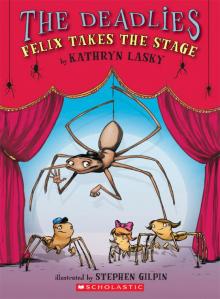 Felix Takes the Stage
Felix Takes the Stage Lucy
Lucy Lone Wolf
Lone Wolf Broken Song
Broken Song The Shattering
The Shattering The Crossing
The Crossing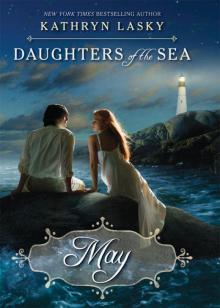 May
May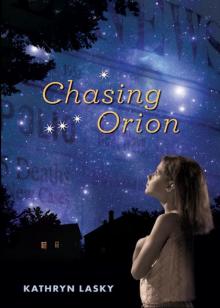 Chasing Orion
Chasing Orion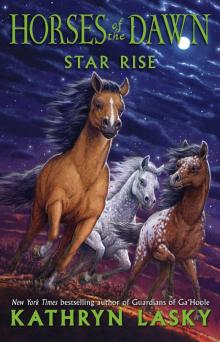 Star Rise
Star Rise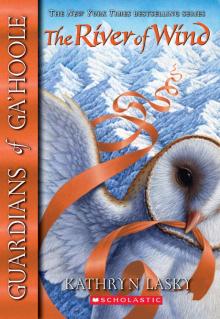 The River of Wind
The River of Wind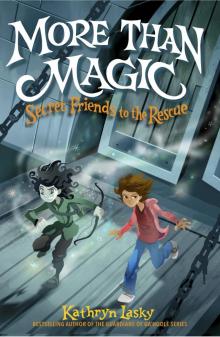 More Than Magic
More Than Magic Born to Rule
Born to Rule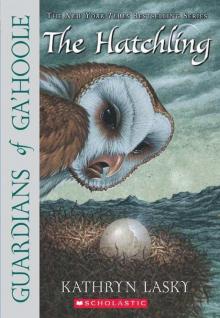 The Hatchling
The Hatchling The Rescue
The Rescue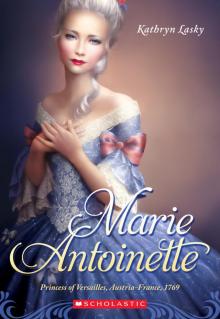 Marie Antoinette: Princess of Versailles, Austria - France, 1769
Marie Antoinette: Princess of Versailles, Austria - France, 1769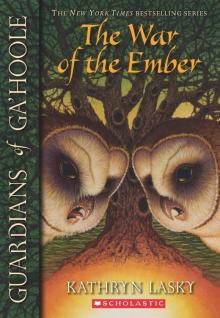 The War of the Ember
The War of the Ember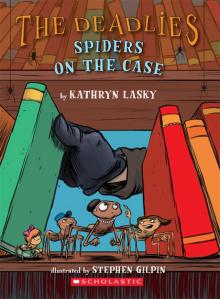 Spiders on the Case
Spiders on the Case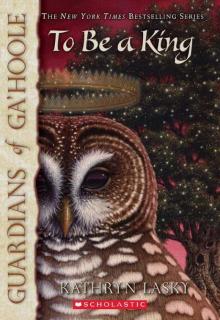 To Be a King
To Be a King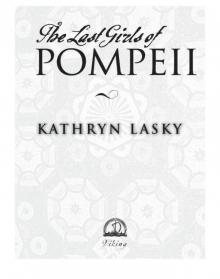 The Last Girls of Pompeii
The Last Girls of Pompeii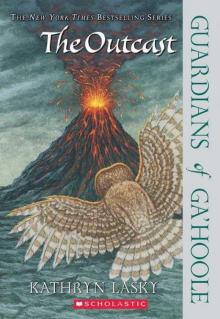 The Outcast
The Outcast Exile
Exile Night Witches
Night Witches Spirit Wolf
Spirit Wolf The Quest of the Cubs
The Quest of the Cubs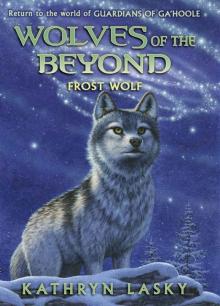 Frost Wolf
Frost Wolf The Keepers of the Keys
The Keepers of the Keys The Extra
The Extra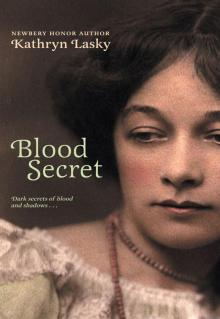 Blood Secret
Blood Secret Watch Wolf
Watch Wolf Blazing West, the Journal of Augustus Pelletier, the Lewis and Clark Expedition
Blazing West, the Journal of Augustus Pelletier, the Lewis and Clark Expedition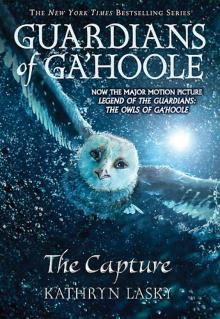 The Capture
The Capture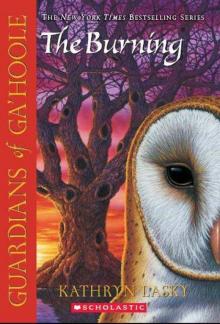 The Burning
The Burning The Journey
The Journey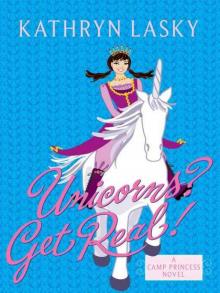 Unicorns? Get Real!
Unicorns? Get Real! The Escape
The Escape Star Wolf
Star Wolf Ashes
Ashes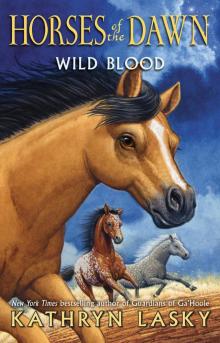 Wild Blood
Wild Blood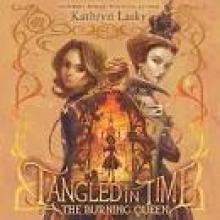 Tangled in Time 2
Tangled in Time 2 The Siege
The Siege Hannah
Hannah Elizabeth
Elizabeth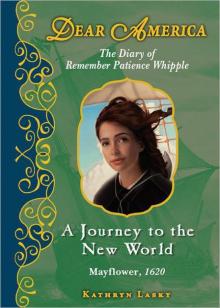 A Journey to the New World
A Journey to the New World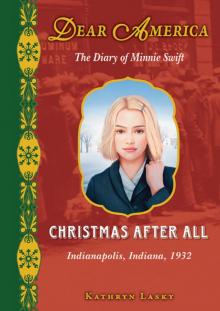 Christmas After All
Christmas After All Mary Queen of Scots
Mary Queen of Scots